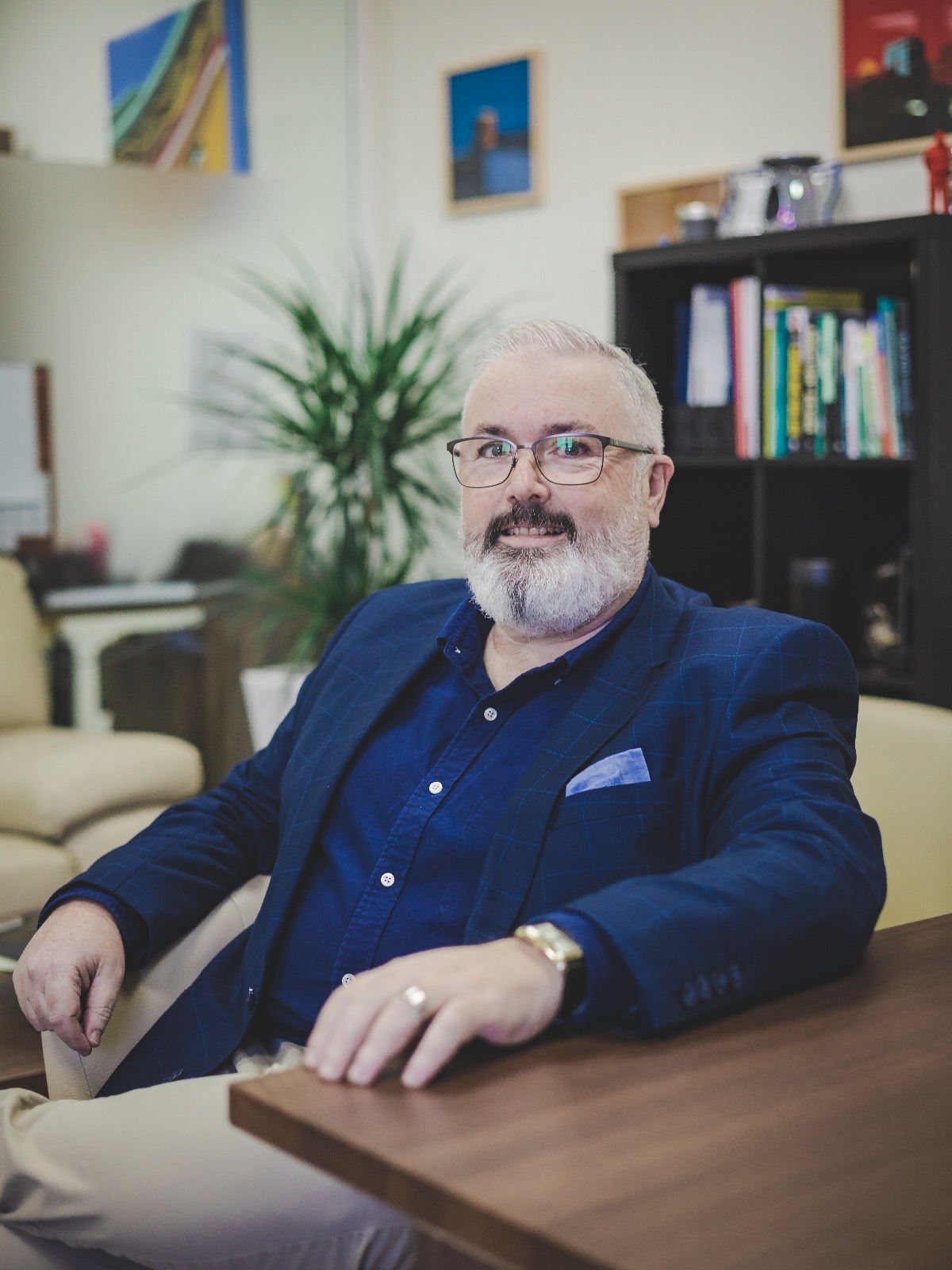In 2014, with the iGaming industry in Malta booming, the Responsible Gaming Foundation was founded with the mission to create wider awareness of the extent about problem gambling in Malta, with a view to preventing it and to provide the necessary support and advice to problem gamblers and those close to them.
“From day one, this mission was underpinned by defined strategic objectives. Primarily the Foundation administers funds donated or collected from the Maltese gaming sector and directs them towards more specific objectives,” Kevin O’Neill, General Manager at the Responsible Gaming Foundation, starts off.

Kevin O’Neill, General Manager
These objectives include providing support mechanisms for individuals who have experienced gambling harm, the promotion of fair gambling, conducting research and increasing awareness on the addictive potential of gambling through targeted information campaigns. The Foundation also embarks on advertising campaigns specifically designed to convince problem gamblers to stop.
“Education is also an important segment which we are currently planning to overhaul. Additionally, we assist in and promote activities that may be considered an alternative to excessive gambling and provide services that support in the rehabilitation of problem gamblers. All this casts a broad safety net that seeks to offer comprehensive protection to vulnerable individuals,” Mr O’Neill explains.
He firmly believes that the safety of gamblers is a shared responsibility among different stakeholders - but primarily it falls on gambling operators to provide a safe and secure environment for their customers.
“They should ensure that front liners, the support team, are adequately trained to deal with those who are potentially at risk. This training must be ongoing and updated regularly. They should also have appropriate policies and procedures in place to prevent problem gambling and provide resources for those who need help. I feel that simply being compliant is not enough and instilling honest values in your staff is critical,” he emphasises.
Mr O’Neill acknowledges that governments and regulatory bodies play an important role too, by enacting a legal framework that provides consumer protection measures.
“Thankfully, in Malta we have a rigorous framework that very much favours the player. It’s worth noting that promoting responsible gambling is not only the ethical thing to do, it also helps to build a positive image for the gambling industry. This, in turn, can attract more customers and increase revenue in the long run,” he points out.
Unfortunately, research into problem gambling in Malta is somewhat inconsistent, so it is difficult to identify to what extent this is present. This is why the Foundation has made it an immediate priority to institute a systematic survey on gambling engagement every two years starting this year.
“The last research conducted took place in 2017 where the estimated percentage of the population who reported some form of adverse effect was one to two per cent. This falls into the norm of the EU. In recent years, there have been unverified reports of an increase in problem gambling in Malta, which has raised concerns among policymakers and public health officials. While it is difficult to say unequivocally whether there is a problem with gambling in Malta, it is clear that the government is taking steps to ensure that the industry operates in a responsible and ethical manner,” Mr O’Neill says.
Another priority is raising awareness about the dangers of gambling addiction. Communications Manager Kayne Said explains that the Foundation uses various methods to achieve this, such as the 360-degree campaign entitled “Take Action: Be a winner. Know your limits”, which was partly funded by the EU.
“The campaign aimed to enhance the presence of the Foundation mediatically and to make people more aware of the support services we offer to problem gamblers. The campaign was a success, and half of those who knew about the Foundation knew this through the Awareness Campaign,” Mr Said says.

Kayne Said, Communications Manager
The next step is to strengthen the message by using multiple communication channels, such as social media, television, radio, and print media, to reach a diverse audience. Additionally, partnering up with organisations that support addiction recovery can help amplify the message and provide resources for individuals seeking support.
“We recently finalised an agreement with Sedqa to contribute to their educational campaigns in schools and for young adults so as to integrate education about gambling addiction into the curriculum and start raising awareness from a young age,” Mr Said says, continuing that it’s also essential to evaluate the effectiveness of these efforts through research and data analysis to ensure continuous improvement of the strategies employed by the Foundation.
The Foundation in fact offers a full suite of support services, the main one being the Supportline 1777, a confidential line for individuals seeking support and advice for gambling-related problems. The Foundation offers a fast-track referral service to Sedqa whereby individuals can be referred for the necessary counselling both to them and their family.
“We also offer a totally anonymous chat line which is accessible from our website www.rgf.org.mt. Importantly, the Foundation also operates a land-based self-exclusion programme that allows individuals to voluntarily exclude themselves from participating in gambling activities at licensed premises in Malta,” Mr Said explains.
Remote exclusion is also an option. This is done by offering free blocking software to gamblers, effectively stopping all access to gambling websites. Overall, the Responsible Gaming Foundation is fully committed to promoting responsible gambling and preventing gambling-related harm in Malta.
But what constitutes problem gambling? A person who gambles regularly may not be sure whether there is anything to worry about. Mr Said says that typically, specific symptoms point towards a problem. These include a preoccupation with gambling, spending increasing amounts of money and an inability to stop despite adverse consequences.
“They may also experience mood swings, anxiety, or depression when trying to cut back on gambling. Other warning signs include borrowing money to gamble, lying to loved ones about the extent of their gambling, and neglecting responsibilities such as work, family, or personal hygiene.”
If any of these symptoms sound familiar, Mr Said suggests that help and support is sought from the Foundation to address the issue before it becomes more serious.
“Anyone can call us through our National Gambling Supportline or chat with us through our website. Confidentiality is guaranteed,” he assures.
The Responsible Gambling Foundation operates a National Gambling Supportline on 1777. A live chat function is also available on www.rgf.org.mt. All information is treated confidentially.
Main Image:
